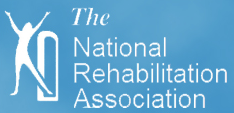Professional Development Events/Training/Conferences
TRAINING ACTIVITIES: PAST, PRESENT AND FUTURE
The prime activity to implement the first two objectives above is conducting two or three training conferences a year in the Metropolitan New York City area. Usually these meetings are held at Hunter College, New York University, or Hofstra University where there are rehabilitation counseling programs that also have Rehabilitation Counselor Student Associations and faculty members that have invariably provided leadership to the Chapter. Other venues might include leading edge non-profit rehabilitation providers and large employers that have excellent diversity programs. All site locations must be accessible to persons with disabilities who participate at all levels of the Chapter.
The Chapter has been doing this since 1950 without interruption. The majority of the attendees are rehabilitation counselors in non-profit agencies and State Vocational Rehabilitation agencies. A small but growing number are rehabilitation counselors in private practice. Again, a majority of the attendees are NRA members and constitute the bulk of our membership. Finally, most of the rehabilitation counselors are Certified Rehabilitation Counselors (CRCs) and Licensed Rehabilitation Counselors (LRCs) who must obtain Continuing Education Credits (CEUs) to maintain their individual certifications or licensures (including those in the area of ethics). All our conferences earn the participants CEUs which we offer through our application to the Commission on Rehabilitation Counseling Certification by one of our university affiliations. Occasionally, there have been exhibitors and providers present to familiarize the attendees with their specialized rehabilitation services and assistive technology.
Finally, public officials, employers, academicians and leaders of non-profit organizations (including national NRA) attend our conferences as well as serve as presenters, panelists, awardees, sustaining members, or co-sponsors, thus, assisting the Chapter in educating the general public on issues relevant to persons with disabilities.
Conferences usually are held in the spring and in the fall/winter. The winter meeting is usually followed by our Business Meeting and the spring meeting includes an award ceremony. In 1969 our Chapter managed a national NRA conference in New York City and both in 1990 and in 2003 we hosted a Northeast Regional Conference. Our Chapter is part of the Northeast Region of NRA which includes Federal Regions I (New England) and II (New York, New Jersey, Puerto Rico and the Virgin Islands.) Often these conferences are co-sponsored with related organizations, such as the Association of Vocational Rehabilitation in Alcoholism and Substance Abuse (AVRASA).
The agenda topics of the conferences vary, but traditionally the Spring Conference might focus on issues relating to physical disabilities and the Winter/Fall Conference deals with concerns of those with mental and addictive disabilities and of our co-sponsoring agencies.
Past Topics
- Job Retention, JobZone, Rehabilitation in the Insurance Industry (Spring 2006)
- Multi-Culturalism (Winter 2006)
- Job Accommodation Network (Spring 2007)
- Ethics (Winter 2007)
Recent Topics
- Social Reintegration for Veterans and Individuals with Disabilities (late Spring 2008)
- Cross-Discipline Collaboration (early Spring 2008)
- Ethics, Mentoring, and Leadership (Winter 2008)
- Counselor Wellness (Winter 2008 and early Spring 2009)
- Ethics and Employment (late Spring 2009)
- New Thoughts on Continuing Vocational Rehabilitation and Counseling Issues (Winter 2010) (click here for more information)
- Northeast Regional Conference (Summer 2010) (click here for more information)
- Employment in Challenging Times (Winter 2011) (click here for more information)
- Rehabilitation Counselors: Where Are We? Where Are We Going? (Summer 2011) (click here for more info)Quality Rehabilitation: Licensure and Ethics (Winter 2012) (click here for more information)
Possible Future Topics
- Rehabilitation for Repatriated Public Offenders, Update on SSA Work Incentives, Plan for Self Support and Special Needs Trust for Persons with Disabilities TBA
- Brain Research and Rehabilitation TBA
